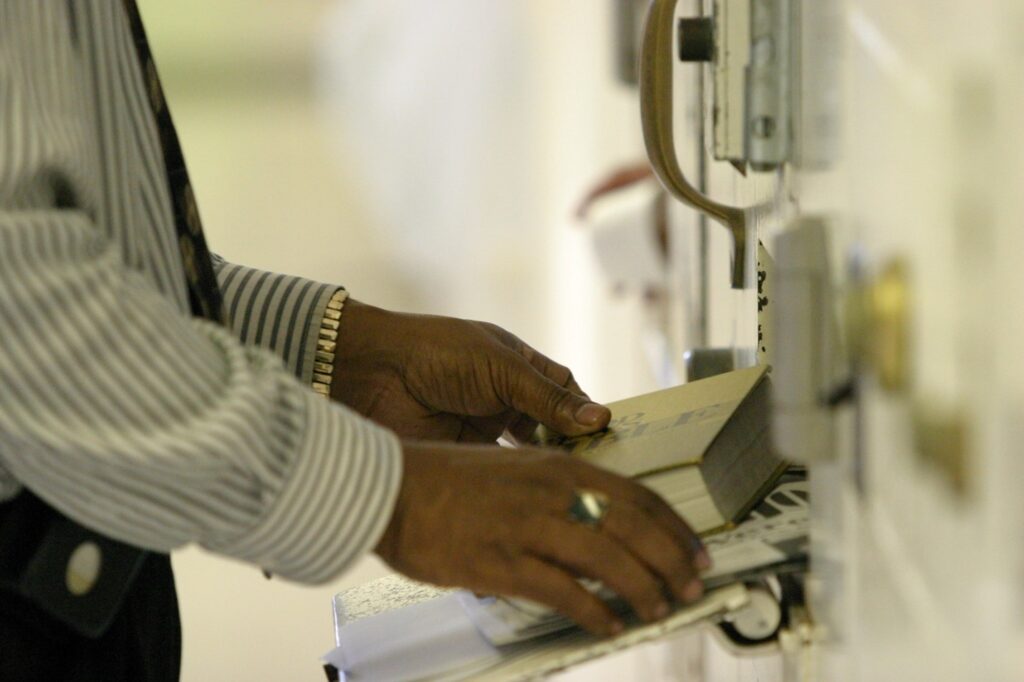
By Peyton Majors
Christian Action League
May 5, 2023
A bill that could potentially boost the presence of chaplains in the state’s prisons by loosening the education requirements passed a North Carolina state Senate committee on Monday, and then passed the Senate 31-18 on Tuesday.
The bill, S. 508, would make it clear that community-funded and volunteer chaplains for the state’s prisons are not required to have any level of education. Under current policy, the Division of Prisons requires that chaplains: 1) have a degree from an accredited four-year college or university, 2) have a Master of Divinity or equivalent level of education, and, 3) be ordained and in good standing with their faith group.
The Christian Action League supports the bill.
Rev. Mark Creech, executive director of the Christian Action League, who advised lawmakers on the measure and lobbied for its passage said:
“Chaplains can play a significant role in inmates’ rehabilitation by helping them develop better coping mechanisms, discipline, moral values, and a positive outlook on life. They can also assist in reducing the rate of recidivism among inmates, encouraging them to experience the transformation of life, which may be known in a right relationship with God – the reformation and rebuilding of their lives.
“By promoting values such as forgiveness, compassion, and empathy, chaplains can contribute to a more positive culture within the prison system. This can reduce violence and hostility among inmates and promote greater understanding and respect among individuals from different backgrounds or beliefs.
“These are just a few things that chaplains bring to the table.
“Indeed, formal training resulting in a bachelor’s or master’s degree in divinity, theology, or related fields such as counseling and pastoral care is to be much appreciated. The effectiveness of a chaplain, however, may depend more on factors such as their ability to connect with inmates, listen actively, provide emotional support, and speak to them on their level, which may not necessarily be tied to formal education.
“Many volunteer chaplains who have had a limited formal education or none are remarkably effective. Inmates need every opportunity to be exposed to as many voices as possible in the hope of finding one or more that can help them, not a restriction of voices.”
The current requirements have prevented some prisons from having chaplains, said bill sponsor Sen. Ralph Hise.
“We had a minister in my area who is pastor at the First Baptist Church and had a Ph.D. from a different accrediting body that was disqualified from serving as a volunteer chaplain in the prison,” Hise said.
The senator called the current requirements “ridiculous.”
“So, for the volunteer and community-funded positions, we eliminated that [requirement] to make sure that our inmates have access to chaplain services,” Hise said.
The bill passed the Senate Rules Committee via voice vote.
“I will say in the rural area of western North Carolina I represent, finding a minister that has both a four-year degree and a master’s degree would be the exceptional minority in the number of ministers and others who could fill that role,” Hise said. “And as a result, those services remain unprovided for our inmates. … The positions are highly vacant, particularly in rural areas because of finding someone to meet those requirements.”
The bill, he said, “makes sure that the community groups that fund them as well as those willing to volunteer can select from their membership.”
The bill states, “The Department of Adult Correction shall have no written or unwritten policy setting mandatory minimum educational requirements for persons serving as community-funded or volunteer chaplains.”
